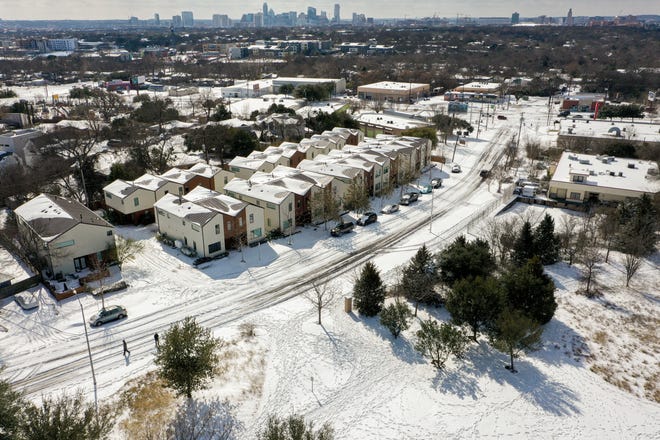CommonWealth Magazine – CommonWealth magazine
Energy Disrupter
THE MASSACHUSETTS LEGISLATURE has once again sent a comprehensive climate bill to Gov. Charlie Baker, and this time Baker has sent it back with a series of amendments. While the two sides agree on the broad terms of the bill, a major sticking point is an interim goal on the road to net zero emissions by 2050. The bill would mandate that emission levels reach 50 percent of 1990 levels by 2030. The Baker administration (and current state policy) favors a 45 percent goal.
That difference of 5 points almost seems like a rounding error, but it has major implications for everyday residents, especially for homeowners. Among other measures, Secretary of Energy and Environmental Affairs Kathleen Theoharides says that extra 5 percentage points would require the complete elimination of heating oil. EEA estimates retrofitting oil-heated homes would cost an additional $3 billion over 10 years. Meanwhile, under either interim target scenario, tens of thousands of homes need to convert from carbon-heavy fuels like oil and gas to renewables like solar and wind.
Residents broadly support a range of home heating policies that could help ease that transition, even while many oil and gas homeowners are satisfied with their current set-up. That’s according to a new poll by the MassINC Polling Group sponsored by the Barr Foundation and conducted with input from the Executive Office of Energy and Environmental Affairs (topline, crosstabs). Elsewhere in the survey, residents say solar is an attractive energy source but are unsure of the installation options or community-based programs available to them.


Incentives, loans, and stricter regulations are broadly popular
Residents are highly supportive of programs and policies that would help them upgrade their homes, especially incentives and loans. Most popular are incentives for utility companies to help make customers’ homes more efficient (80 percent support) followed by direct incentives to homeowners to upgrade their home heating systems (77 percent).
The state already does a version of this with its Mass Save program, which provides discounted energy-efficient upgrades for homeowners subsidized by a charge on customers’ utility bills. In focus groups conducted as part of this research, participants were familiar with Mass Save, and some had even consulted the program’s offerings in the past. But once homeowners had their own heating system and budget sorted out, none had kept a close eye on other home heating options for a better deal. Any comparative information came either from previous homes they had owned or vague impressions from family and friends. This creates a challenge for policymakers who must make incentives so attractive so as not to be missed while ensuring demand does not outstrip available funding for upgrades.
Another approach would be a loan program. Nearly three-quarters of residents (74 percent) support the establishment of a state-backed “Green Bank” that could provide long-term loans to pay for home energy upgrades. Less popular is a proposed requirement that home energy upgrades be made when a home is sold.
The focus groups indicated there are only a few times when homeowners are primed to upgrade their heating systems. Requiring upgrades during a sale would be a natural fit, but it would add an extra burden to an already stressful and expensive transaction. While less popular than other proposed policies, it still receives majority support (63 percent).
Two other policy proposals would place the burden squarely on the shoulders of utilities and oil and gas providers. One idea would be to require oil companies to sell a blend of cleaner oils by 2030. Biofuels are derived from organic matter like corn and soy and can be combined with traditional oil to produce lower emissions. Current state policy encourages biofuel blends from providers but does not mandate them.
The second proposal would set emissions caps on gas utilities and oil and propane companies in the state. The caps would steadily decrease over time, meaning less pollution can be emitted. This would be akin to the current Regional Greenhouse Gas Initiative that regulates how much emissions power plants in the region can emit, or the new Transportation and Climate Initiative Pthat Baker’s EEA spearheaded. Both the biofuels mandate and an emissions cap receive roughly three-quarters support (75 percent and 73 percent, respectively).
Satisfaction with current heating source presents a barrier


While incentives, loans, and new requirements on utilities may create an attractive environment to upgrade home heating systems, at some point residents themselves must want to make a change. But most residents are satisfied with the heating set-up they already have. Among those who currently heat their homes with gas, almost half (49 percent) say it is their preferred fuel source. Similarly, a plurality of oil customers (41 percent) would prefer to stick with oil. It’s worth noting that many oil customers live in regions of the state where oil is their only option. Without gas as an alternative, any switch away from oil could plausibly be to a cleaner option like renewable electricity
But there’s also evidence that those who have made the switch to renewables are glad they did. Roughly half of those who currently heat their homes with electricity generated from solar (51 percent) would prefer to stay with solar. A third of those who currently heat their homes with electricity from the grid (34 percent) say their top choice would in fact be electricity that comes from solar. If electric providers start (or are mandated) to source more of their energy from solar and other renewables, this switch would require little to no effort from customers themselves. It would, however, require the expansion of solar infrastructure on rooftops and open spaces, some of which is already under development.
Preference for solar is clear, but road to installation is uneven
Overall, 31 percent of all residents and 30 percent of homeowners would prefer to heat their homes with electricity generated from solar power if cost were no issue. That puts solar second only to gas as a heat source. But while interest in solar is relatively high, so are the perceived barriers. Chief among them is installation costs. In focus groups, participants were curious about solar but had misgivings about both installation costs and how much they could really expect in savings over the long-term. But given the right incentives, there is clear evidence that homeowners are open to solar installation.
Overall, 61 percent of homeowners who do not already have solar say they are at least “somewhat” interested in having solar panels installed on their rooftop, including 28 percent who are “very” interested. If offered an incentive, 53 percent of these homeowners would be “more interested” in having solar panels installed. Critically, 20 percent of those who said they were initially not interested in or unsure of solar panels said incentives would make them “more” interested.
Another solar proposal, allowing utility companies to rent space on homeowners’ rooftops through either a direct payment or a reduction on their electric bill, was less popular. Only 37 percent of homeowners who do not currently have solar became more interested when presented with the panel rental model.


Meanwhile, community solar – programs that provide electricity to groups of homes through shared panels – remain unknown to many residents. A plurality (40 percent) have heard nothing about community solar programs, while another 24 percent have heard only “a little.”
Community solar programs can be beneficial because they pool resources and can distribute power across more densely-packed neighborhoods. In particular, community solar has been suggested as a way that renters could have more say in their heating and electric options. Renters in this survey, however, say how a home is heated is either not a consideration (21 percent) or a minor one (34 percent) when deciding on a place to live.
These results suggest that a more direct route to solar adoption may be through landlords, homeowners, developers, and housing authorities. The climate bill would provide municipalities with more control over the environmental standards new buildings must meet. But one sticking point between the governor and the Legislature is whether that municipal control could extend to banning fossil heat or requiring solar on new buildings.
There is no doubt that converting tens of thousands of homes across the state to renewable energy sources will be a herculean task. But it is also one the state must overcome if it is to meet the emissions standards it has set for itself. The public is a willing partner, but they need options and incentives to make their homes more energy-efficient and the state’s net zero goals a reality.
Maeve Duggan is a research director at the MassINC Polling Group.
Original Source: https://commonwealthmagazine.org/news-analysis/poll-home-energy-upgrades-could-be-challenge/















